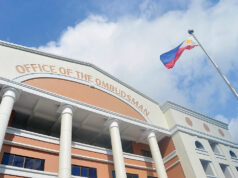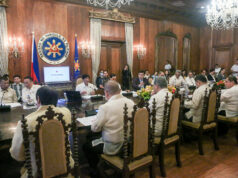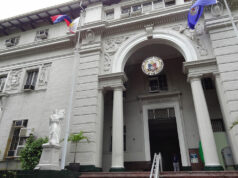Number portability attractive to ‘3rd player’ — DICT
By Patrizia Paola C. Marcelo
THE Department of Information and Communications Technology (DICT) said it believes mobile number portability, adjustments to foreign ownership rules, open access, and spectrum reallocation will make setting up a third telecommunications company more attractive to investors.
DICT Acting Secretary Eliseo M. Rio, Jr. said existing and proposed legislation on these matters will enable the “third player” to compete effectively with incumbents PLDT, Inc. and Globe Telecom, Inc. over the long term.
The government is set to select the third player within the year. It may also admit a consortium to compete against the duopoly of PLDT and Globe. The third player is expected to hit certain investment criteria and meet service standards which have yet to be released. Interested domestic firms, who may partner with foreign telcos to make a bid, include Now Corp., Philippine Telegraph and Telephone Corp. (PT&T), and Converge ICT Solutions Inc.
The Senate last week passed the “Lifetime Cellphone Number Act” or Senate Bill 1636, allowing users to retain their phone numbers even if they change network providers.
The law also calls for the removal of interconnection fees, making it easier to switch providers. Under previous regulation, users are charged P2.50 for inter-network mobile calls and 15 centavos for text messages.
The Senate is set to discuss on second reading a bill to amend the Public Services Act or Commonwealth Act No. 146, which specifies that foreign entities can only own a maximum of 40% of public utilities and services companies. Sixty percent of such a company must be owned by Filipinos.
Business groups have long sought amendments to the decades-old law. The foreign equity restrictions are said to be a hindrance in China Telecom’s investment in the Philippines. China Telecom was the company selected by the Chinese government to participate in the Philippine auction, Malacañang has said, though there has been speculation that foreign-equity limits are making it reluctant to pull the trigger.
The airline and telecommunications industries are also being considered for full foreign ownership.
Mr. Rio acknowledged that ownership restrictions could be making foreign telcos wary.
“When a foreign telco partners with a local telco, it would understandably want control of the partnership or consortium for it to be interested in investing,” Mr. Rio said in a message. He said earlier that the DICT will proceed with the selection process and not wait for the bill to be passed into law.
Senate Bill no. 1763 (“Promoting Open Access in Data Transmission, Providing Additional Powers to the National Telecommunications Commission”) is also up for second reading. The bill aims to regulate the data transmission industry, including interconnection so that data transmission firms “can connect to each other at the various segments and interfaces,” for easy entry into the market and to prevent any one or a combination of firms from dominating the market.
“When the law is passed networks and infrastructure can be shared by mutual agreement with other telcos,” Mr. Rio said.
The bill also includes provisions on pricing transparency, promoting fair competition in all segments of the data transmission network, and penalizing a data transmission firm that refuses access to any infrastructure to another firm.
Up for committee discussion is a bill on spectrum reallocation — Senate Bill 1742 (“An Act Providing for the Allocation and Management of the Radio Frequency Spectrum”). The bill proposes terms for allocation, including dividing usable spectrum into a sufficient number of blocks to ensure adequate competition, and a competitive bidding process for frequency assignment. The last time the NTC assigned frequencies was through a so-called “beauty contest,” where selectors picked the most attractive proposals.
The DICT has said that assigning the 300 megahertz (MHz) spectrum to the third player will be sufficient for it to compete with PLDT, Inc. and Globe Telecom, Inc.
However, for long-term equitable allocation, the DICT may have to re-farm the frequencies. Mr. Rio has said that re-farming would prevent companies from purchasing frequencies from previous holders, the cost of which would then be likely passed on to the consumer. The incumbents have bought additional frequency from parties who have exited the market, in the absence of a spectrum management policy. This issue came to the fore with issue of PLDT, Inc.’s “compensation” bid for the surrender of the 10 Mhz frequency previously allocated to Connectivity Unlimited Resource Enterprise (CURE).
The NTC estimates that 30.32% of all available radio frequency is allocated to PLDT while Globe holds around 24.9%. Some 39.35% is unassigned or subject to litigation, leaving an uncommitted remainder of 5.41%.
Mr. Rio, however, said legislation is needed to allow the National Telecommunications Commission (NTC) to recall and reassign frequencies because the incumbent telcos might take the DICT or the NTC to court.
The DICT plans to draft a framework for equitable frequency allocation by the end of the year.
The DICT earlier this month amended provisions of its memorandum order on the policy guidelines of the entry of a third player. The company or consortium must have paid-in capital of at least P10 billion; experience in providing, delivering, and operating of telecommunications services for the last five years; a congressional franchise not related to either PLDT or Globe.; and no uncontested liabilities with the NTC as of Jan. 31, 2018.
Mr. Rio had said he believes that the re-inclusion of the P10-billion paid-in capital requirement for the selection of the third player is not going to hinder interested participants in the process.
Hastings Holdings, Inc., a unit of PLDT Beneficial Trust Fund subsidiary MediaQuest Holdings, Inc., has a majority stake in BusinessWorld through the Philippine Star Group, which it controls.



